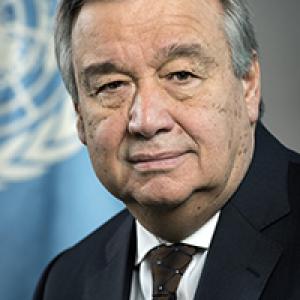In the midst of a global pandemic, accompanied by rising inequalities and economic devastation, the voices of human trafficking survivors and victims risk being drowned out.
But listening to their stories is more crucial than ever as the COVID-19 crisis increases fragilities and drives up desperation.
As many as 124 million more people have been pushed into extreme poverty by the pandemic, leaving many millions vulnerable to trafficking.
Children are at great and growing risk: they represent one-third of victims globally — a share that has tripled in the last 15 years. Half of victims in low-income countries are children, most of whom are trafficked for forced labour. Criminals everywhere are using technology to identify, control and exploit vulnerable people. Children are increasingly targeted through online platforms for sexual exploitation, forced marriage and other forms of abuse.
Trafficking in women and girls for the purpose of sexual exploitation continues to be one of the most widespread and abhorrent forms of human trafficking. Migrants account for more than half of those trafficked in most regions.
Governments must take urgent steps to strengthen prevention, support victims and bring perpetrators to justice. This includes implementation of the United Nations Convention against Transnational Organized Crime and its Protocol to Prevent, Suppress and Punish Trafficking in Persons.
Our efforts must be guided by survivors of trafficking. Their contribution is essential to address risk factors and patterns, and to identify and protect victims and ensure their access to justice and recovery, while holding their exploiters accountable.
The United Nations is committed to listening and responding to the voices of victims and survivors of human trafficking, ensuring their rights and dignity, amplifying their stories and learning from them in our fight to prevent and put an end to this terrible crime.




